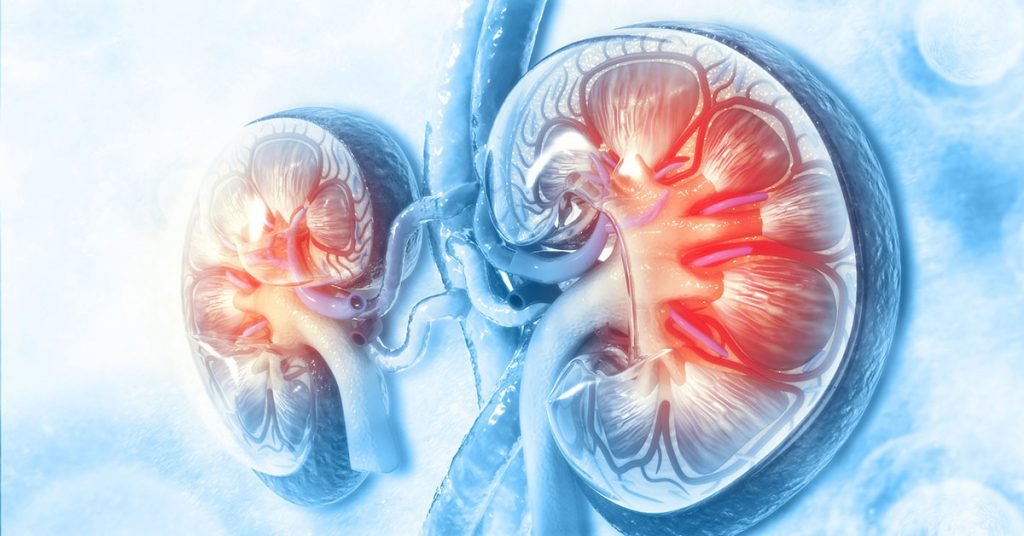Weight Loss for Kidney Health: Why it Matters
Losing weight has many advantages for overall health and improved kidney function. But why does weight loss for kidney health matter?
The kidneys, located at the bottom of the rib cage, are an important part of managing the fluids in our body. When you eat or drink liquids, the fluid is eventually filtered through the kidneys from the blood and excreted into the urine. In addition, kidneys are an important part of regulating pH, salt, and potassium and producing hormones that regulate blood pressure.
Your Weight & Your Kidneys
Being overweight can directly affect your kidneys. The extra weight forces them to work harder and filter wastes above normal levels. Over time, the extra work can cause kidney disease, high blood pressure, diabetes and a variety of chronic conditions.
Unfortunately, this disease isn’t rare and is the ninth leading cause of death in the U.S. Kidney disease affects an estimated 37 million adults in the U.S. People who are overweight with diabetes and high blood pressure are at the greatest risk of developing kidney disease.
Losing weight and taking control of your health is the best prevention. Start by calculating your BMI by using a BMI calculator. If your BMI is between 25-29.9, you are overweight. If your BMI is over 30, this is considered obese. If your BMI is high, give us a call and we’ll help create a personalized weight loss plan that will produce the best results for you.
Below are general guidelines to improve kidney health and prevent complications such as anemia, heart failure, and kidney failure.
Kidney-Friendly Diet
Work every day to minimize your risk with healthy lifestyle choices. Promote kidney health and slow down kidney disease with recommended foods. The National Kidney Foundation suggests the DASH Diet. Studies have shown the DASH diet lowers the risk of heart disease, stroke, the formation of kidney stones and decreases blood pressure.
You’ll find the DASH diet is easy to remember since it aligns with best practices for most diets. Stick to your fruits, vegetables, whole foods and grain, fish and beans. Eat food that is low-salt, low-fat, with zero added sugars and eat red meat sparingly.
Maintaining a low-salt diet will be difficult at first as most things we eat have salt in them. Try to shop around the perimeter of your grocery store where your fresh foods are located. If you need to purchase canned or boxed foods, look for ones that are unsalted or have low-salt. Instead of using salt while you’re cooking, add flavor with vegetables like onions, peppers, and garlic or experiment with more herbs and spices.
Low-salt diets are important to kidney health, especially for people with high blood pressure and kidney disease. Once the kidneys are damaged, they are unable to eliminate excess salt resulting in more kidney damage, waste build-up, and fluid.
Commit to Staying Active
People who exercise consistently are stronger and have more energy. However, you should check with your doctor before you begin an exercise program.
There are a few things you should know before you get started. First, choose a continuous activity that you might enjoy like walking, swimming, biking (indoor or out), or aerobic dancing. Build up gradually to 30-minute sessions at least three days a week. You’ll be more successful if you stick to a schedule (ex. every Monday, Wednesday, Friday).
Don’t forget to pay attention to your body. Start out slowly with a warm-up then pick up your pace. End with a cool down. Remember, you should still be able to talk with someone while exercising. If you can’t, you’re overdoing it. If you begin to feel chest pain, cramps, dizziness, or shortness of breath, it’s time to stop.
Kidney Maintenance
While March is National Kidney Month, you can commit to keeping your kidneys healthy year-round. Always be mindful of:
Maintaining a blood pressure below 140/90
Staying in your target blood sugar range, if you’re diabetic
Committing to staying active
Losing weight with healthy diet choices
Getting tested for kidney disease if you’re at risk
Taking medications as instructed by your doctor
If you smoke, quit
Keeping track of this can be overwhelming. Our Cary, NC weight loss clinic can help keep you on track with personalized plans that will produce the best results for you. We are focused on how your weight can affect your total health and specialize in diabetes and pre-diabetes care as well as hypertension and pre-hypertension care. Both of which can also improve your heart health. If you’re ready to take charge of your health by getting to a healthy weight, call Total Healthcare MD at (919) 436-3777.

